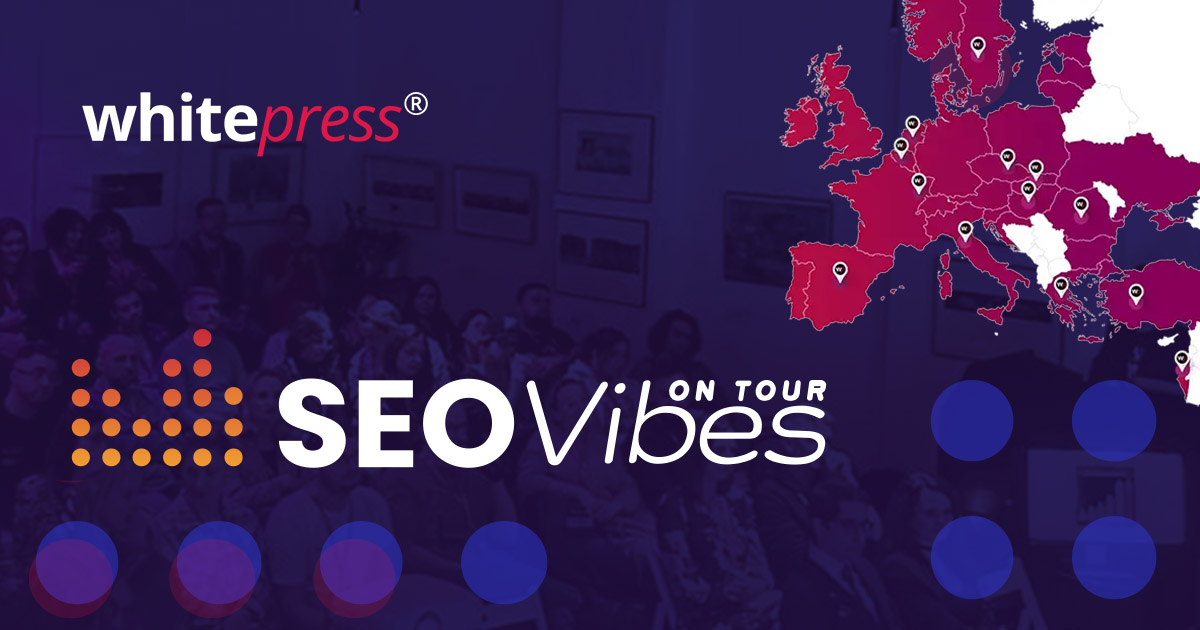- The SEOs Diners Club
- Posts
- The SEOs Diners Club - Issue #65 - Weekly SEO Tips & News
The SEOs Diners Club - Issue #65 - Weekly SEO Tips & News
Here are the weekly SEO insights for the SEOs Diners Club members.

You may also join our free SEO Diners Club network to ask questions and share your thoughts.
What is Content Readability, and Why is it Important?
Unreadable content is useless. Learn how to create content your audience will read, not just skim.
One of the keys to building a successful content strategy online is to make your content readable. So what is content readability, and why is it important?
Content readability measures how easily your target audience can read your content. Readable content is clear, understandable, and easy to skim. Content that is difficult to read will be unclear and hard to understand. Good content helps the reader learn something new, discover, or solve a problem.
What is Content Readability, and Why is it Important?
There are many methods to measure content readability. These methods depend on both the reading level and intelligence of the individual. They are based on objective factors such as the word choices used in your content, how often and rarely used words are used, and the structure and length of your sentences and paragraphs.
How to Measure Content Readability?
There are many methods to measure content readability. These methods are based on an individual's reading level and intelligence and on objective factors such as the word choices used in your content, how often, frequently, and rarely used words are used, and the structure and length of your sentences and paragraphs.
What should you consider to make your content more readable?
Here are some tips you should pay attention to in this regard:
1.Shorten Your Sentences: Long sentences often contain multiple thoughts or ideas and can be difficult for the reader to decipher. Therefore, try to shorten your sentences.
2.Divide and Shorten Your Paragraphs: Your paragraphs should usually contain no more than 2-3 sentences for online content. Paragraphs that express a single thought or idea make your content more readable.
3.Use Active Voice: Active voice makes the sentence more precise and understandable. This is very, very important, especially in English content.
4.Use Different Words: Repeating the same words over and over again can make your content boring. This can also be perceived as keyword stuffing, which can have adverse effects in terms of SEO.
5.Avoid Using Jargon: Using jargon and complex expressions makes your content more difficult to read. Consider using a more common or better-known term or description instead.
6.Make Listings: Lists are a skimming reader's best friend. If your content is easy to skim, it will be easy to read. So when you want to write a long list separated by commas, turn it into a numbered or bulleted list.
You can apply the same technique to the following:
Steps in a sequence.
A group of related items, ideas, or concepts.
Points in a long paragraph.
Other information you want to emphasize or separate from the main text.
7.Create Useful Content: There is no other subject that harms your site as much as writing content to be written. Especially after Google's Helpful Content system, I even witness that Google does not index content that does not answer user expectations and questions. So do not produce meaningless content with the concern of producing content.
8.Give Importance to the Introduction Paragraph: The introductory paragraph should briefly summarise the subject you will explain in detail in the sub-section and pass to that section. You should not include topics irrelevant to the subject you will write in this section; your article should be around the same subject.
The readability of the content is an important issue.
When your content is readable for your target audience, it will be easier for them to get value from this content. They will learn something from it, take away something new, or find the answer they seek.
On the other hand, content that is difficult to read will prevent them from doing any of the above. It will bore or frustrate them.
And a bored, frustrated audience will not find your site worth their time. This is the antithesis of content marketing.
Work on your readability, and you will see better results.
In the article in the link below, you can find some suggestions about content readability for English content. If you have English sites, I strongly recommend reading this article.
On 30 May, we are meeting at SEO Vibes on Tour Istanbul!
This event is an excellent opportunity for anyone who wants to enter the world of SEO and content marketing.
I invite you to a great event organized by WhitePress on 30 May, where you can learn the latest developments in the SEO and content marketing sectors: SEO Vibes on Tour Istanbul!
I will attend the event with Mert Vahit DEMİR from ZEO and Cihat Murat YÜKSEL from Webtures. The topic of the presentation I chose for the event is "Producing Content Suitable for Google Algorithms with Artificial Intelligence"
Make a note in your diary and prepare for SEO Vibes on Tour - Istanbul Edition!
You can find the details in the link below:
Bing Chat Rolls Out Some Features Announced Earlier This Month
Bing has announced that these features are rolling out, some are live, and some will be live in a week or two.
Here are the new Bing Chat features:
Chat history: Rolling out this week on desktop and mobile.
Mobile: Bing will introduce new features soon to the Bing app, SwiftKey app, Edge app, and Skype app.
Bing app updates: Add Bing widget to your home screen, and continue mobile chat on desktop, voice, and multilingual chat improvements.
SwiftKey app updates: AI message composition, access to translator directly from the keyboard, new tones.
Edge app updates: Contextual chat, selected text actions.
Skype app updates: Access the new Bing in all group chats.
The Future of SEO After Artificial Intelligence
In this article, you can find out what awaits SEOs as the industry enters a new era and why we should not get too hung up on artificial intelligence or search engines.
Artificial Intelligence continues to develop at a dizzying pace and naturally worries us SEO experts about the future:
Will Artificial Intelligence take away our jobs? I am not pessimistic about this.
We all must keep doing what works today with the future in mind. Stay strong in your technical, on-page, and off-page SEO efforts.
Understand SERP features and how they work for and against you. Have a solid strategy that is objective and measurable. Invest in SEO for the long term and provide the resources it needs.
And leverage AI for your organization, processes, and opportunities. Don't get left behind.
But don't lose sight of what drives you to your goals today. Don't abandon ship on SEO.
Although we call it something else in the future, SEO is not dying. It will continue to evolve and transform into what it should be.
People are searching and researching. Brands and organizations want to be found.
Although technology, roads, and tools change, this basic principle does not change.
WordPress 6.2.1 Update Caused Sites to Break
WordPress 6.2.1 security update has caused problems on some websites.
A new WordPress security update with many security fixes has caused some. It caused severe problems for WordPress sites.
The update removed a vital functionality that caused many plugins to stop working on sites using the WordPress block system. WordPress quickly released version 6.2.2.2 to fix version 6.2.1. If you are currently experiencing problems with your WordPress sites, I strongly recommend you check your version.
Optimise Google's New Interaction to Next Paint Metric
Interaction to Next Paint is becoming one of the Core Web Vitals metrics that affect Google rankings. Find out what this change means and how you can optimize your website.
Interaction to Next Paint is a new metric that evaluates how quickly your website responds to user interaction. It measures how long it takes between user input, such as a button click, and the next refresh of page content.
This interaction delay should be less than 200 milliseconds to achieve better rankings in Google. This ensures that the website feels responsive to users.
If you want to learn how to optimize this new metric, I recommend you read the article I've linked below:
Google: SSL Certificate Does Not Strengthen SEO
Google's John Mueller debunked the claim that an SSL certificate strengthens your SEO.
John Mueller clarified whether an SSL certificate is an important Google ranking factor.
This is the most crucial point of his answer to the question:
"HTTPS is not a factor in deciding whether a page should be indexed. We use HTTPS as a slight ranking factor, and having HTTPS is great for users. A free certificate from Let's Encrypt does the same thing."
Contrary to popular belief, a site without an SSL certificate can still be indexed by Google, and HTTPS has minimal impact on ranking results.
I prefer to look at it as user experience rather than ranking. Which site owner would like Google Chrome to warn visitors that your site "may not be secure" because you don't have an SSL certificate?
Book Of The Week: “Running Lean” - Ash Maurya
This book explains how to filter ideas quickly and effectively so that the time and effort consumed is not wasted.
Life is short, not long enough to produce something unwanted. Lean Startup is a guide to ensure that our time is not wasted chasing the wrong products.
Maurya presents this process in understandable language, from finding the idea of a venture to establishing a working model. By removing uncertainties, Lean Startup makes it easier to take the proper steps and thus increases the chances of success. This book can guide you on your entrepreneurial journey.
I hope you enjoyed my weekly SEO insights. Hope to see you the following Monday in the new episode. I wish you all a great week.
Best,
Mert Erkal
How Can I Help You?







